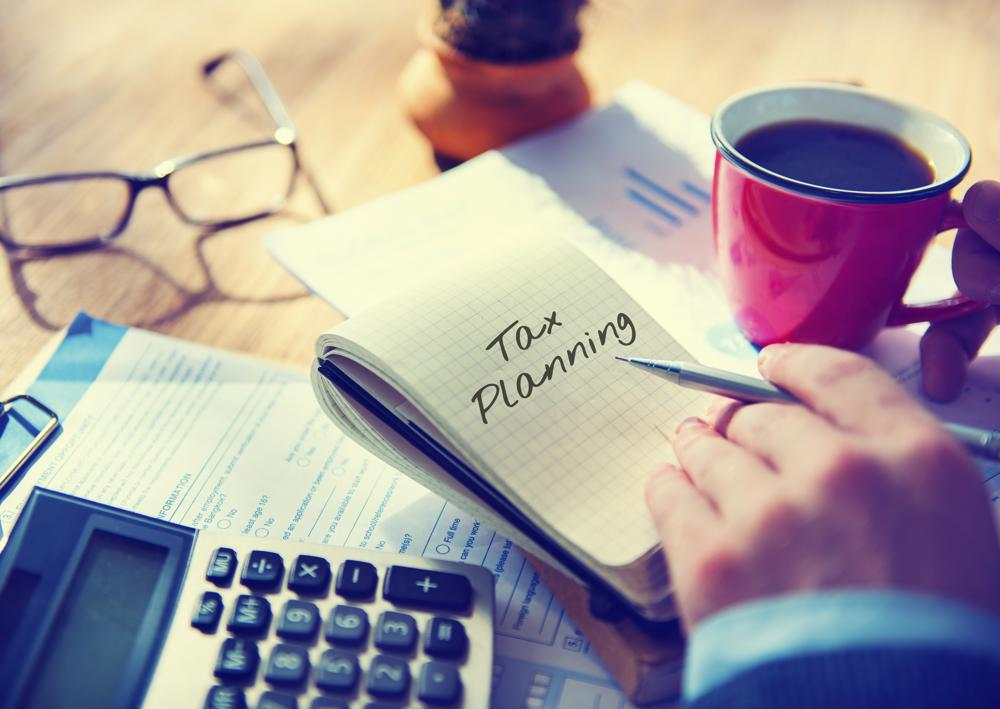
How to reduce tax for high income earners
Owning a business that is turning a profit is extremely rewarding. However, as your company grows, you need to be aware of bookkeeping, taxes and tax breaks constantly. This means setting up budgets, keeping track of cash flow and tax-effective structuring. Let's take a look at how you can reduce taxes as a high income earner.

How higher income can affect your taxes
You may be concerned about having to pay higher taxes as you continue to earn more in your career. However, you shouldn't be afraid of success just for fear of having to pay more to the government. There are legal ways of reducing your tax liability. It is a very grey area where tax minimisation becomes tax avoidance as seen by the tax office, so it is important to be aware of this distinction.
Australia is 17th in the world with the highest tax rates at 47% according to the Organisation for Economic Co-Operation. A high-income earner is considered someone who makes $162,000 a year or more.
The taxes you pay on your income is a sliding scale depending on how much you make in a year. For example, if you make $18,200 or less a year, you won't have to pay any taxes. However, if you make $180,001 or more, you'll pay "$51,667 plus 45 cents for each $1 over $180,000." This is all calculated before adding in the 2% Medicare levy.
What strategies can you embed into your business to keep tax costs low? Let's take a look.
Tax reduction strategies
It's important to work with an accountant to find legal ways to minimise your tax liability. There are plenty of methods you can use to meet your expectations and still remain compliant with the ATO. Let's explore seven different tax strategies.
Improving your deductibles
Tax deductions are claims on work-related expenses necessary to conduct business. This isn't something like grabbing a coffee before work. Instead, these are expenses that directly relate to earning your income. Something like a computer and internet connection would qualify.
These are expenses that can reduce your income tax. You must have spent the money yourself without getting reimbursed and have a record to prove the amount of the expense.
The COVID-19 pandemic has shifted the possibility of what is considered taxable income deductions like work-from-home expenses or even test expenses. You can find out more on the ATO website.
You can claim a deductible superannuation contribution up to $27,500 a year against your assessable income. Also, if you have unclaimed retirement account contributions from 1 July, 2019, you can include this sum in the current year as a deduction.
Another helpful tax-deductible strategy is claiming your income protection insurance. This is a type of insurance that protects your assets and your quality of life if you are unable to work. You can file the amount you pay each year on your tax return.
Minimising your capital gains tax liability
Capital gain tax is the tax you pay on profits from selling assets, such as property or investments.
You report capital gains and capital losses in your income tax return and pay tax on your capital gains. Although it is referred to as 'capital gains tax,' it is not a separate tax. There is a capital gains tax (CGT) discount of 50% that you can claim if you held onto an asset for more than a year (12 months). However it is important to mention that the main exclusion from the 50% discounting is on the sale of your residence – but not to worry as this is exempt from CGT!
Establishing a family trust
A family trust is a discretionary arrangement where the trustee has the discretion to distribute income to different beneficiaries as it sees fit. From a tax point of view, the benefit arises if a beneficiary has low income and can access unused margin tax rates. It must be noted however that the distribution must remain with the beneficiary, it cannot revert back to the trustees in the form of a "reimbursement arrangement".
Purchasing assets in your partner's name
As long as your partner is in a lower tax bracket than you, purchasing assets in their name can result in a lower taxable income for yourself. Similar to developing a trust for beneficiaries, the income deriving from these assets is applied to unused marginal tax rates.
Set up salary sacrifice for your super
You can set up salary sacrifice to increase your super contributions. As this is a pre-tax arrangement, you will receive more in the hand than if you made after-tax super contributions.
Invest in a self-managed super fund
If you want more control and flexibility over your super and own your own business or work independently, a self-managed super fund (SMSF) is a great way to improve your taxable income rates. Super contribution funds within this structure are taxed at 15% like regular supers, so you can benefit from more manageable rates on your investments while preparing for retirement.
Structure a tax-effective business
Your business structure is how you've set up the management organisation. While it may not have a big impact on your day-to-day life, when it comes time for tax liability, it can have a big impact. While your personal income tax rate may be high, you're taxed at a flat rate if you work under a corporate structure.
A small corporate business (turnover < $50 mill.) is taxed @ 25% as opposed to the individual top marginal rate of 47%.
Remaining compliant with the ATO
As you consider your options, you need to move through each opportunity with the ATO in mind. Without the right guidance and the wrong tactics, you could go from just trying to save money on your taxes to facing serious penalties.
Reducing your taxable income isn't a matter of lying on your tax forms about the revenue you've made or the expenses you've had to pay throughout the year. It's about working through the legal processes to get the most out of each fiscal year.
Working with an accountant can help you stay on the straight and narrow. They can help you know which benefits you qualify for, the deductions you can make, when to release super funds and how to move through trusts legally. As a high-income earner, the ATO looks especially closely at how you file taxes; a tax professional can help.
Wilson Porter tax professionals can help you each tax season. We can give you financial and tax advice for your personal and business taxes. From developing the right tax-effective business structure to annual reporting we have your best interests in mind.
To learn more about tax planning and liability, contact a Wilson Porter financial advisor today.

 Tips for choosing a small business accountant
Tips for choosing a small business accountant The future of tax is digital
The future of tax is digital COVID-19 payroll tax relief explained
COVID-19 payroll tax relief explained